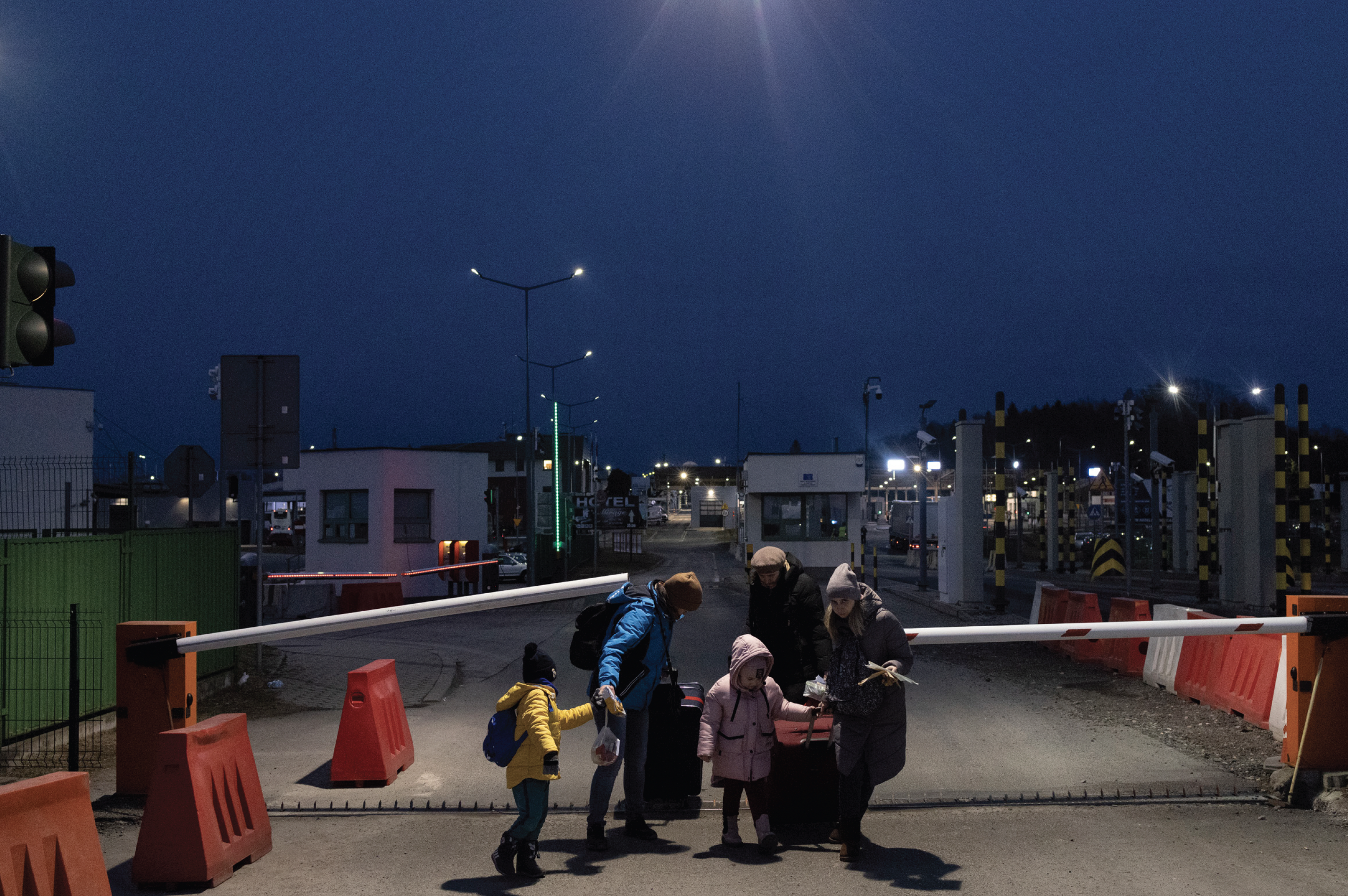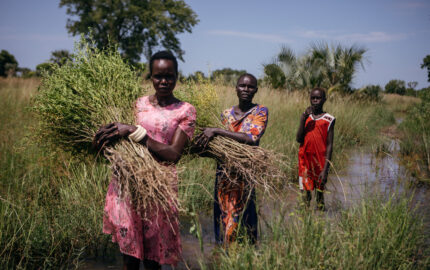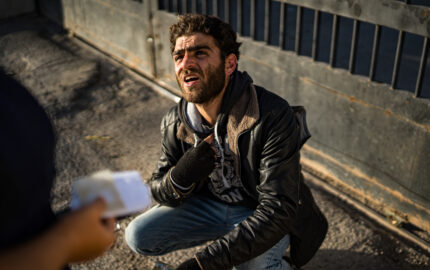Maciek Nabrdalik, NF '17, on photographing the Ukrainian refugee crisis at the Polish border:
"I’ve been covering this refugee crisis on the Polish border for The New York Times since the very first day of the Russian invasion in Ukraine. At the very beginning, in the first day or two, I would see mainly calm women. Usually, some children with some kind of overhead luggage, small bags. Most of them seemed like they knew where they were going and how they were going to get there.
The border wasn’t really organized yet. They were confident crossing it. It looked almost like they hoped to get back to Ukraine, even within a week. I knew that most of these women left behind their sons, fathers, partners, and husbands, because Ukraine announced that any man between the ages of 18 and 60 must stay in the country.
Then that night, in the photograph you see here, it started slightly changing. You would see people with larger luggage, rushing. Even though from our perspective, it didn’t look like it was necessary because, of course, Poland is on the western border; it seemed like a quiet, safe space. They looked like they had less an idea where they were going. I started meeting people who literally had no plans. They were completely indifferent to whether they were going to stay in Poland, or if they’d be taken somewhere else, to Germany or to Netherlands.
I remember seeing this family in the photograph, and that’s the moment when I started seeing the change. They were on an empty road, coming from the customs offices. But they were running. It looked like they were running to catch a cab or train or bus. They were just running, to cross into Poland. This was the way that people were coming now.
I met more people like that — people who have no idea. But there are also fewer people who will mention that their loved ones are left behind, even though they are. This was a big change. The first women, with the hand luggage, would quite often complain that their husbands weren’t allowed to come. With these people, you don’t hear that. They just come. They want to feel safe, and they want to find any place where they can wait for what’s next."
"I’ve been covering this refugee crisis on the Polish border for The New York Times since the very first day of the Russian invasion in Ukraine. At the very beginning, in the first day or two, I would see mainly calm women. Usually, some children with some kind of overhead luggage, small bags. Most of them seemed like they knew where they were going and how they were going to get there.
The border wasn’t really organized yet. They were confident crossing it. It looked almost like they hoped to get back to Ukraine, even within a week. I knew that most of these women left behind their sons, fathers, partners, and husbands, because Ukraine announced that any man between the ages of 18 and 60 must stay in the country.
Then that night, in the photograph you see here, it started slightly changing. You would see people with larger luggage, rushing. Even though from our perspective, it didn’t look like it was necessary because, of course, Poland is on the western border; it seemed like a quiet, safe space. They looked like they had less an idea where they were going. I started meeting people who literally had no plans. They were completely indifferent to whether they were going to stay in Poland, or if they’d be taken somewhere else, to Germany or to Netherlands.
I remember seeing this family in the photograph, and that’s the moment when I started seeing the change. They were on an empty road, coming from the customs offices. But they were running. It looked like they were running to catch a cab or train or bus. They were just running, to cross into Poland. This was the way that people were coming now.
I met more people like that — people who have no idea. But there are also fewer people who will mention that their loved ones are left behind, even though they are. This was a big change. The first women, with the hand luggage, would quite often complain that their husbands weren’t allowed to come. With these people, you don’t hear that. They just come. They want to feel safe, and they want to find any place where they can wait for what’s next."



